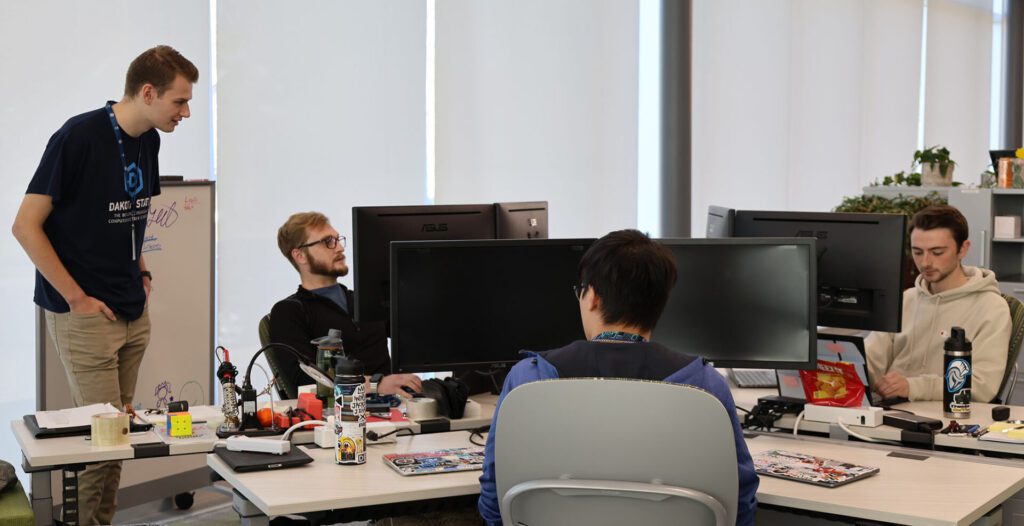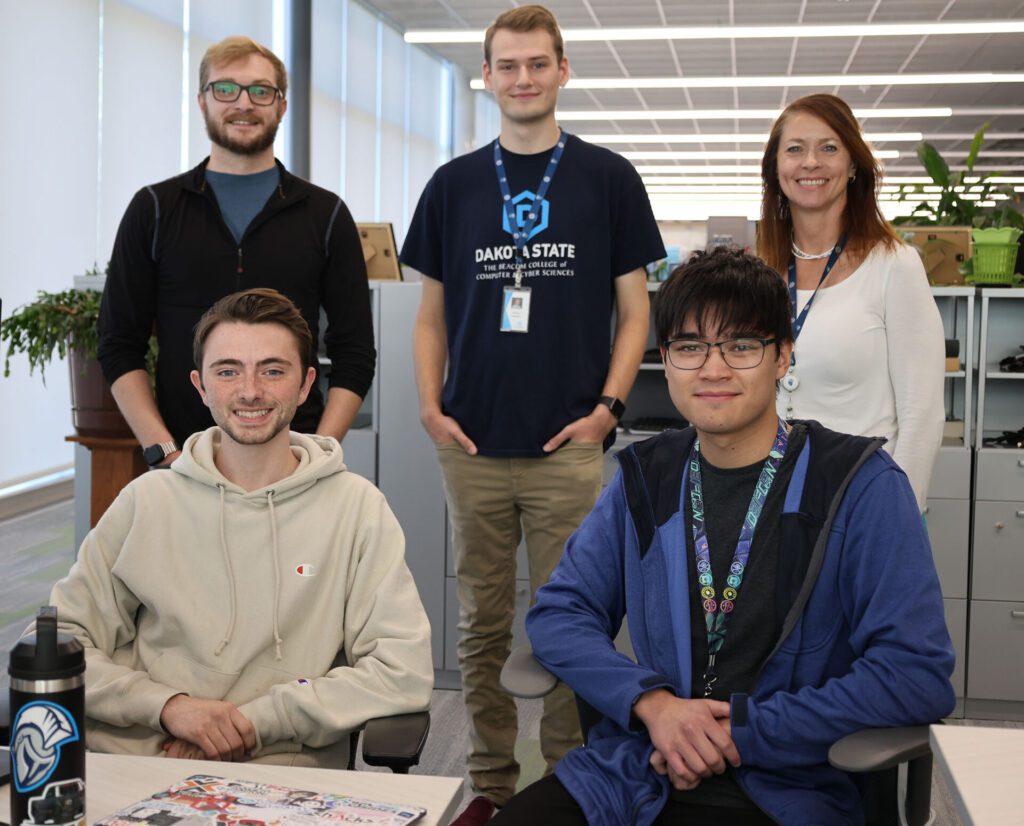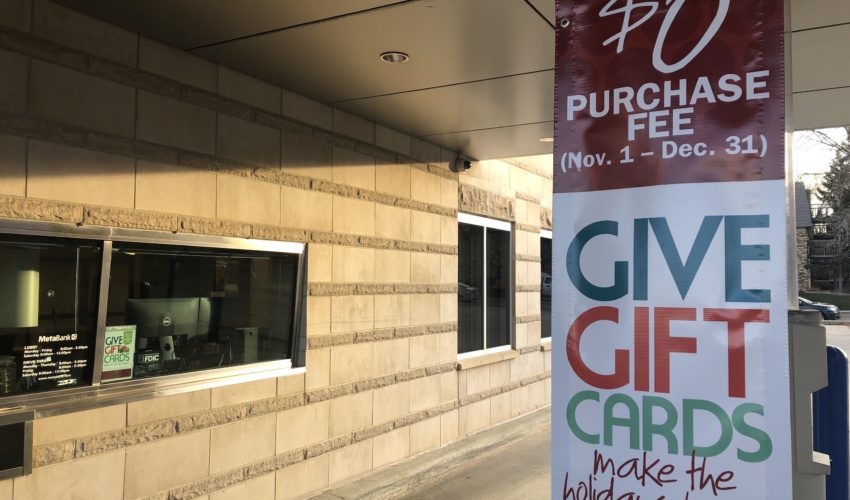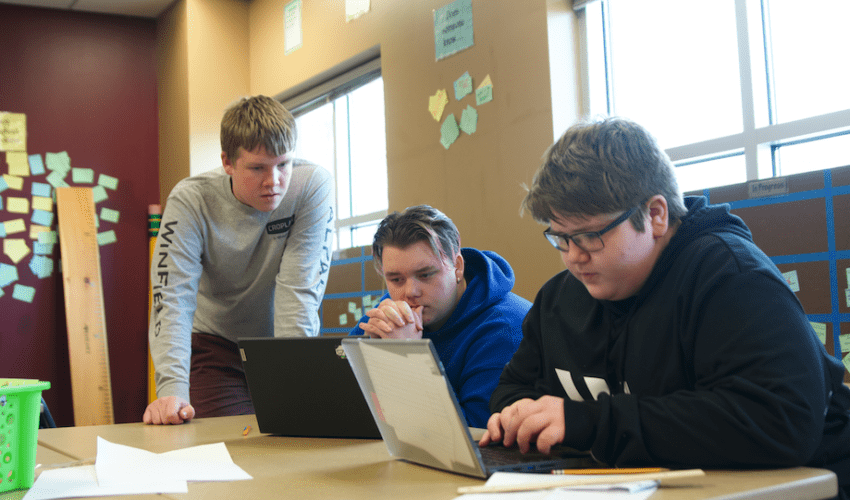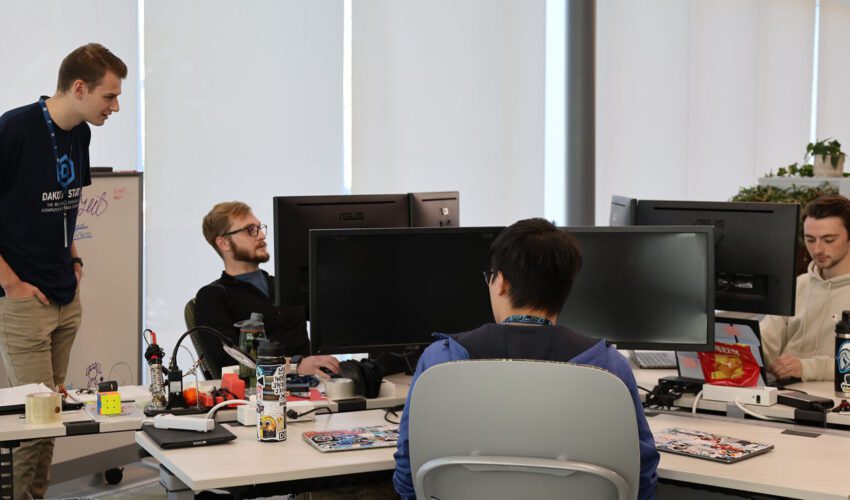DigForCE delivers expert cybersecurity advice on blog site
Dec. 5, 2023
This paid piece is sponsored by Dakota State University.
The first week of December is always Computer Science Education Week, an annual observance to inspire K-12 students to learn computer science. Many places will hold events to teach children about technology, and there are online resources as well, but what options are there for adults?
For grown-ups looking for inspiration or information about computer science or cybersecurity, the Digital Forensics Lab at Dakota State University in Madison has started providing resources on cybersecurity topics. This year, the lab began publishing blog posts to share important information about technology. Fact sheets called smart cards also are available on a variety of topics, such as how to spot fake images and grandkid scams or information on apps like Facebook, Instagram and FitBit.
DSU students working on digital forensics projects also are writing blogs to share information with the public.
“Staying informed about the latest developments in digital forensics is crucial for anyone interested in cybersecurity, law enforcement or technology in general,” said Dr. Arica Kulm, director of the lab. “Remember, the field of digital forensics is constantly evolving, so it’s important to keep up with the latest trends, techniques and tools by regularly reading and engaging with the community.”
On campus, the lab is called DigForCE, an acronym for Digital Forensics for Cyber Enforcement. Through a program sponsored by the Division of Consumer Protection, the lab provides free forensics expertise and training to state law enforcement agencies. Employees analyze digital devices submitted by agencies, conduct open-source intelligence investigations and train law enforcement on the proper ways to preserve digital evidence. Student workers help with research and gain additional experience by writing blogs on topics that interest them.
There are over a dozen blogs on the DigForCE website on topics such as automation in ethical hacking, Apple Air Tags and the difference between cloning and hacking. Three students in particular have exploded the amount of content on the site, Kulm said. Some blogs are technical, some are explanatory, and others are historical. Kulm’s blog, “Solving Crime Through Digital Evidence,” looks at how digital evidence helped solve a 1974 Kansas murder.
It’s important to get the word out about the technology, but Kulm also feels it’s important to highlight the caliber of students at Dakota State.
“This is a wonderful way to showcase our bright students and to let people see our students’ work. It’s particularly essential in the DigForCE lab because it’s important work that we’re doing for our state, and I want people to know that we have really impressive students doing this work,” she said.
Student Will Campbell has written several of the blogs. He heard about DigForCE in class and was able to intern with the lab over the summer. He continues to work part time during the academic year. He will graduate with a bachelor’s degree in computer science after this semester and will continue on as a graduate student.
Before the internship, “I didn’t have an understanding of the forensics process, how to collect and analyze data,” he said. Now that he has learned about the process, “forensics seems so interesting to me, and I’m lucky to find it because the field is so niche.”
Writing blogs about the field brings his experience to another level by sharing it with others, including fellow students, the community and as an additional resource for law enforcement.
This opportunity not only helps him learn about technical topics but also is a great way to work on writing and communications skills, which is helpful preparation for graduate school. He also enjoys the writing process.
Writing and communication skills are “power skills” for DSU students and alumni working on digital forensics projects. Pictured are Aaron Baker (back left), a penetration tester with Project Boundary Fence; student Will Campbell; and Arica Kulm, director of DSU’s Digital Forensics Lab; and students Landan Hand (front left) and Hunter Wade.
“That makes a big difference,” Kulm said, because “good writing does not come naturally to everyone,” but strong communication skills are critical in the forensics job world. Often termed “soft skills,” DSU President José-Marie Griffiths calls them “power skills.”
Good communication skills are absolutely a power skill that can add so much in a job, Kulm agrees.
“Report writing is a huge part of what we do in this field, where reports can be 100 to 200 pages long, and it can be a struggle if it’s not natural,” she said.
Other students have been writing blogs as well, including students Landan Hand and Hunter Wade. They are both cyber operations majors who are interning with Project Boundary Fence, which is another DigForCE program that provides free security assessments for municipalities. Through this work, they are able to explain to city and county employees the technical options that exist and how that can help them secure processes.
Writing blogs is another way for the students to share their knowledge on the things they are interested in. There is never a shortage of subject matter to choose from. Campbell has a big list, saying, “there’s so much to write about.”
For information on the DigForCE or Project Boundary Fence, contact Arica Kulm at [email protected].

